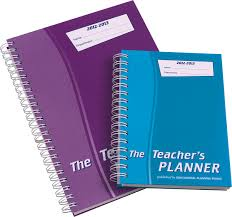My short blogpost on planning started from some major frustration with a TES article in October 2014 reporting Lord Nash (Schools minister) comments about teacher planning. This and a twitter conversation with colleagues (Thank you I’ve tried to cover your points) out there who know the job. I need to come clean I am an SLT member, I like to see evidence of planning and not a template lesson plan, but we are not a school in measures so that may be necessarily different. I still teach and I can well remember teaching full timetables, even though not so much now and in the immortal words of Mr Tom Bennett “I have a fat wallet and light timetable”.
 So my thoughts:
So my thoughts:
Credit to the deputy in my teaching practice school in rural Oxfordshire along time ago “every hour of teaching John will need an hour of prep and an hour of reflection/marking”. That was aimed at a PGCE, maybe to an NQT but it is not sustainable, some planning time can be reduced from an hour per lesson over a period of time methinks. Even the oft hated Oftsed stopped checking lesson plans ( often perfectly presented etc) but want to see evidence of planning. But here is my analysis:
Planning long term
The first task with any class is to plan the year. Think about each term and the purpose, the aims and the build up to say a public exam. For most of my career I’ve taught GCSE, AS and A Level groups so this bit of planning threads aspects such as: coursework demands (when will the students have learnt the skills we test?) alongside standard assessments and exams and any reporting cycle (nothing worse than writing a report and finding out in an assessment the next week how wrong I was). Think through the rough division of the specification or units or topics. and Then also think of the state of our pupils, (not too much compromise) – Chemistry coursework started the week before Christmas is likely to be poorer but if we have four groups how do we fit them in? These are the discussions to have with HoD. This is also where we all produce, contribute to, work on and improve schemes of work; even in production the discussions can be a huge help to understanding the T&L of a course.
So knowing it is these topics to cover this half term and these assessments to fit in, just check how far we got in the last chunk of time. For example the summer often catches us out, we restart the AS students and they are not well motivated (sometimes neither are we) so the autumn term needs to take account of such. Even now I still read over the topics, refreshed from a textbook and check for any shiny new ideas maybe from twitter, maybe from blogs. Chemistry is a great subject to teach and there are lots of ideas out there but the core lesson cannot have too many stories, just a bit of spice in the meal. So this “planning aspect” is about subject knowledge, and it needs building and learning by the teacher, hang it that was the stuff we wanted to teach so it should not be a chore. It’s the reading and the thinking how I might get this over and get it learnt and get it understood that is such a great part of the job. (and worth noting in all my years the content has changed at all levels and the assessment model at all levels and very often, so what I do now is far removed from what Terry Alsop taught me back in the 1980’s in my PGCE. Thankfully the principles held me in good stead.)
Well that’s the weeks work. I still have a planner and think what I’m doing for the week. Science teachers need to order their kit for experiments and whilst we can be kind and buy chocolates for lab technicians, we know they need a fair notice. ( see blogpost unsung heroes). It’s now getting quite detailed, the odd powerpoint, video, website links I’m using, narrative from a text and a think about what questions I might ask and even what might be written on the boards. Oh and don’t forget homework!Certainly any worksheets for practicals or other activities need checking printing or ordering. Oh and here I might check my resource bank and colleagues shared resources and have a chat with colleagues. This is where we should not reinvent the wheel! I really like this and miss it now I teach less. I used to find it difficult to use other people’s worksheets and likewise I do with other people’s powerpoints but they are a starter. In fact this stuff all evolves. I grab last years lesson(s) and last years resources and adapt. In my first three or four years of teaching I did a long review every lesson and my reflections were one of the most helpful parts of my work.
Planning the lesson
Take the deep breath and have a think where we got to last time, check out the short term plan, adapt anything from my marking , heck they really didn’t understand that part. When I was a Head of Year and stuff hijacked me and even now as SLT when stuff in school happens this step can get lost in the fog of school. After all these years I know my stuff well and can cope and manage, it won’t be outstanding but it will be pretty good. There is a vitally important point to this part, we make the lesson work for the class, for the time of day, for certain individuals. We do this to help with behaviour, with progress and ultimately with attainment. Teacher’s know how important planning is to maintain and raise standards of behaviour and understanding – watch me try and teach French if you want to see how awful it can be. ( I make a good fist of it c’est la vie). This needs saying in response to the original article. So obvious really there is not much point me teaching how to do calculations in Chemistry if we can’t balance an equation. In a threatened new world where I am given lesson 256 today and tomorrow must deliver 257 it will come unwound in a hugely serious way. attainment will suffer and behaviour will deteriorate.  Quite often I’ve been lucky enough to have two Y10 or two Y12 classes, less prep -well sort of, the long the mid and the short but not the lesson. It remains a mystery that I can teach exactly the same and one group get it and one don’t, hey ho that is what we love about the challenge of the job. It’s what I think absorbs all the extra time too as the teacher pleased with all that work gets reminded – Ah but it still might not work for Robert, yes what can I do with Robert? so there is a final challenging jigsaw, are we doing enough for “every child matters?” G&T, pupil premium, SEND, girls, boys, middle of the road, quiet pupils? BUT we cannot kill ourselves with work, even I say to the NQT, sometimes you won’t be able to do an all singing all dancing lesson, it’s not a problem, just do some now and again to remind yourself why you came into the job.
Quite often I’ve been lucky enough to have two Y10 or two Y12 classes, less prep -well sort of, the long the mid and the short but not the lesson. It remains a mystery that I can teach exactly the same and one group get it and one don’t, hey ho that is what we love about the challenge of the job. It’s what I think absorbs all the extra time too as the teacher pleased with all that work gets reminded – Ah but it still might not work for Robert, yes what can I do with Robert? so there is a final challenging jigsaw, are we doing enough for “every child matters?” G&T, pupil premium, SEND, girls, boys, middle of the road, quiet pupils? BUT we cannot kill ourselves with work, even I say to the NQT, sometimes you won’t be able to do an all singing all dancing lesson, it’s not a problem, just do some now and again to remind yourself why you came into the job.
Off the shelf plans, will they cut down planning? No. Will they save time for us all? No – and anyway much of this is done…..at home! DO I want offf the shelf plans? No its the creative bity of the job and if you offer me some they pop into a box called possible resourcves, I still need to do the planning. Or follow the logic and then read this post by Martin Robinson
I still think this basic, preparing a lesson is vital for the successful outcome and it’s a good reminder to try and protect each other from other stuff to make sure we prep well, we enjoy prep and our pupils benefit. One last small point though, pupil behaviour needs to be good, nothing more soul destroying than all that prep and an inability to deliver cause of poor behaviour or low level disruption. That’s for another post.
Here is a helpful link to @teachertoolkit clever 5 minute teacher plan if you have others, let me know.
Some questions to think about
Q1 How does preparation evolve in a teacher career from student teacher, NQT, the early years, middle leader etc?
Q2 What evidence should we see from colleagues, what evidence of planning without an endless stream of paperwork and extra work which does not directly benefit pupil progress?
and for those in church schools
Isaiah 28:29
All this also comes from the Lord Almighty, whose plan is wonderful, whose wisdom is magnificent.
Isaiah 32:8
But the noble make noble plans, and by noble deeds they stand.
Proverbs 15:22
Plans fail for lack of counsel, but with many advisers they succeed.
Psalm 94:11
The Lord knows all human plans; he knows that they are futile.


Pingback: Planning Planning Planning by @SheliBB | UKEdChat.com - Supporting the #UKEdChat Education Community
Pingback: Education Panorama (November ’14) by @TeacherToolkit | @TeacherToolkit
So wrong. A department planning together is great development of teaching and learning. Then I take that lesson by lesson plan and adapt where I want or need to. My energy is then responding to what my students don’t know, and finding out what they don’t know through marking. Otherwise each teacher is reinventing a wheel in the mud. Department planning already has the wheel on a flat road. Then the teacher can tinker to get it on a downward slope.
LikeLike
The creativity and team work mix gets great results – not only that within that mix is accountability built in.
LikeLike
My favourite quote/ story regarding planning concerned the Duke of Wellington. He was asked why his plans had succeeded at Waterloo when the great Napoleon had failed. He said Nsplorons plans were like a fancy horse harness made of brass, magnificent to look at and great to use. But if the brass snapped on use in battle there was nothing to be done it was useless. He preferred his harnesses made of leather. If the leather snapped he’d tie a knot and carry on!
Whenever i hear of dogmatic rigid plans this comes to mind
LikeLike
I think we are all in favour of cutting workload, who wouldn’t? For me the job is to plan the time for max impact with my pupils. Start with a dept plan or a SoW of course but then it has to be designed for the pupils. Most of us love this – those who want a machine produced worksheet or rigid usage don’t really understand the job methinks. OR they might be OK even good – but outstanding?
LikeLike